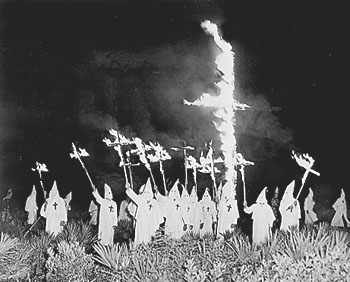What Donald Trump Supporters Are Really Fearing
By:
We're finally, mercifully, at the end of this seemingly endless cage match of an election. And while the odds remain stacked against Republican presidential candidate Donald Trump, his defeat won't eliminate the causes for his rise. By playing a 21st-century "Southern Strategy," Trump unleashed and traded on anger that's obviously still simmering in a segment of the country.
The end of the election will inevitably lead to the beginning of the post-election reflection and analysis. And the immediate question should be: what was underneath all that anger?
Post-9/11 feelings of vulnerability played right into his declaration to build a wall, deport 11 million people, and ban Muslim immigration. It was an understandable, albeit over-simplistic emotional reaction to a complex problem. People are looking someone to come along and "fix it."
But it wasn't simply a knee-jerk response to terrorism. The odds of being killed in a terrorist attack conducted by an immigrant is one in 3.6 million, even including 9/11. So what was it? Racism? Anger at trade deals? Illegal immigration? Gay marriage? Maybe some twisted cocktail of all of them. If you believe that rage is really just fear turned outward, maybe the root of the phenomenon wasn't xenophobia or homophobia as much as metathesiophobia — fear of change.
The Trump phenomenon wasn't based in a rational fear of people afraid of losing their lives. It was based on their fear of losing their way of life. And it's stark evidence of why social change in this country is so slow. Change scares people. And that fear causes them to resist.
It took 100 years to go from The Civil War to the Civil Rights Act.
 Wikimedia Commons - wikimedia.org
Wikimedia Commons - wikimedia.org
Yet, 50 years later it still took the murder of nine black churchgoers for the South Carolina Gov. Nikki Haley to take down the Confederate flag from the statehouse.
And even that wasn't without backlash.
As much as we like to pride ourselves on being American, we haven't always been up to the task of being American. Just as the 1960s saw progressive movements counter-balanced by ultra-reactionary groups like the John Birch Society, the digital age has produced coalitions committed to undoing gains made by ethnic and religious minorities. What was fear of integration of public schools is now fear of immigration. Even prejudices one might like to think have been purged from the American psyche still rear their ugly head when the door is opened.
Political change is the ultimate triumph of our better natures, but ut social change takes place over time. Martin Luther King said that the arc of the moral universe is long, but it bends toward justice. The same could be said for the arc of American history. It also bends toward reason, fairness and sanity. But it's a slow, slow bend. It takes generations for new ideas to permeate a society and be accepted as the new normal. And that requires education, and people overcoming their fears. It also requires generations to die out without leaving a slime trail of hate behind them.
Ultimately it's not an American thing. It's a human thing. Or a frightened human thing. Nativist movements have sprung up all over the world, most noticeably in Britain, France, and the Netherlands. There are even neo-Nazis in Germany, where you wouldn't think people wouldn't be waxing nostalgic for that kind of thing.
Not that there aren't real threats in the world. And it's not that locking the doors and buying a gun won't give you the illusion of safety. But the only constant in life is change. Being unable to move beyond fear keeps people living in a constant state of paranoia and psychological and social paralysis. At some point — and that's presuming there's the capacity for self-reflection — people have to ask themselves if being barricaded inside the house, AR-15 locked and loaded, peering out the window, scanning the property line for illegal aliens, or unfamiliar ideas, is really the best way to live.
To paraphrase Heraclitus: you can't drown in the same river twice.
